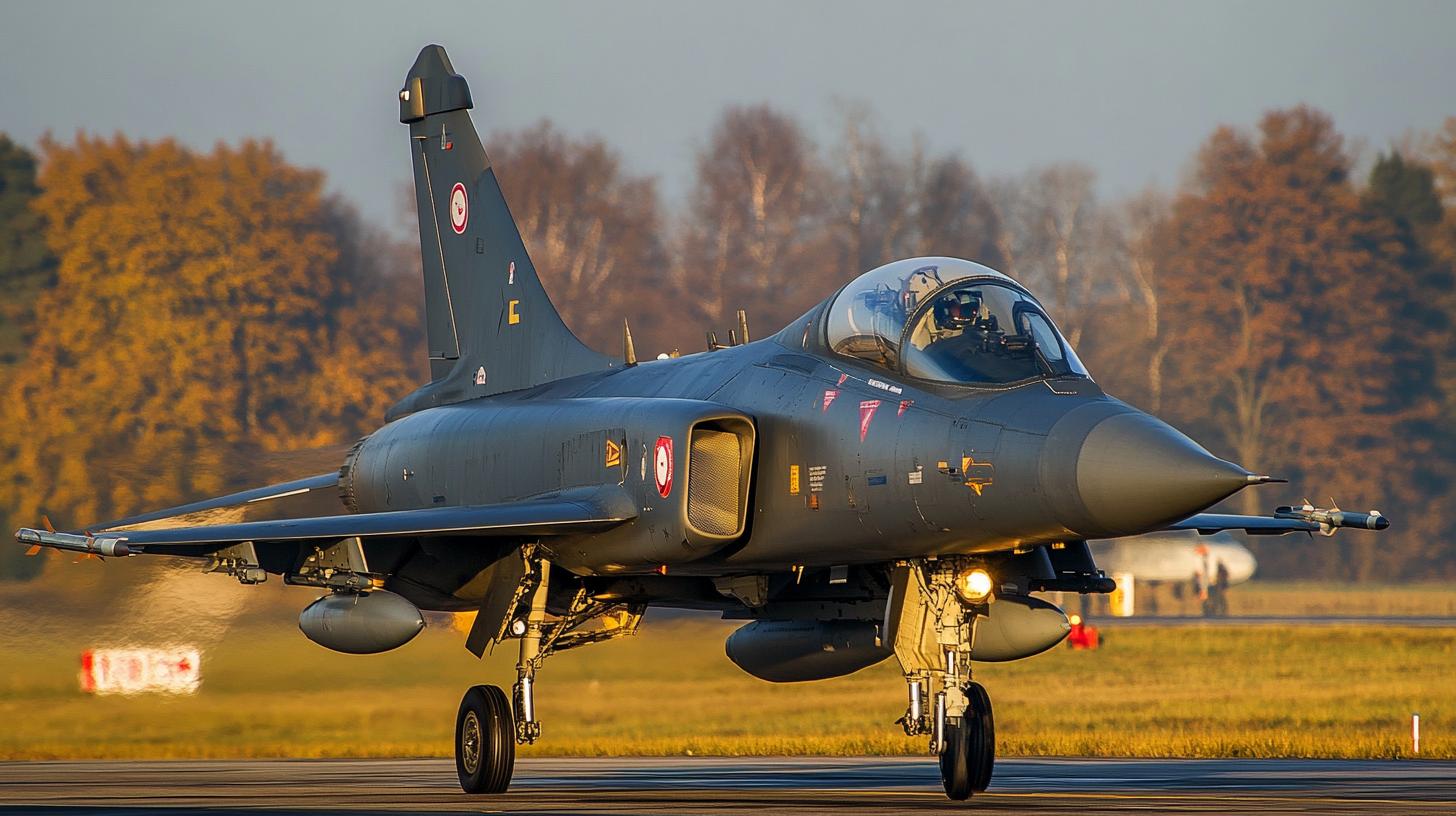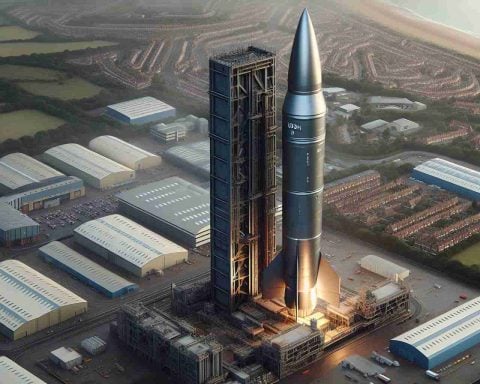“`html
Poland is making a bold move to upgrade its air force capabilities amidst the increasing global defense tensions prompted by Russia’s actions in Ukraine. The Polish Ministry of National Defense (MoND) is focusing heavily on airpower, powered by a significant boost in defense spending, doubling from its pre-war status to approximately PLN 123.6 billion ($30.9 billion) slated for 2025.
Investment Surge
With the war in Ukraine underscoring regional security vulnerabilities, Poland has rapidly escalated its military expenditure. Capital expenditure is a major beneficiary, with PLN 110 billion devoted to new equipment acquisitions since 2022, extending with an additional PLN 51.5 billion next year. The emphasis on air strength has seen over $22 billion allocated to aircraft procurements, headlined by historic deals for Apache helicopters and modernization programs for existing fleets.
Advancing Air Power
A focal point of Poland’s strategy involves the latest fifth-generation F-35A fighters. In 2020, Poland committed to acquiring 32 Lockheed Martin F-35As for $4.6 billion, with the first aircraft, AZ-01, unveiled this past August. These state-of-the-art fighters are expected to patrol the skies starting in 2026. Meanwhile, Poland is enhancing its current force of F-16C/D fighters, with approved mid-life upgrades adding advanced radar and combat capabilities.
Furthermore, Poland has secured FA-50 jets from South Korea, expanding its air fleet with custom configurations suited for diverse operational needs. Talks also continue with Boeing regarding a potential deal for F-15EX jets, hinting at further expansion.
Rotary-Wing Strength
Beyond fixed-wing aircraft, Poland’s helicopter arsenal is undergoing transformation, marked by a landmark order for 96 AH-64E Apache helicopters—strengthening Poland’s status as a leading Apache operator globally. Discussions with Boeing could soon add the CH-47F Chinook, reinforcing transport and tactical support.
Expanding Arsenal
Complementing new aircraft, Poland is acquiring a wide array of American-manufactured munitions, including Hellfire missiles and a diverse range of air-launched weapons, enhancing its overall combat readiness.
Poland’s strategic military shift is not only fostering alliances with international defense manufacturers but is also reinforcing its own local industrial capabilities, marking a significant turning point in Eastern European defense dynamics.
“`
How Poland’s Military Expansion is Redefining European Defense Strategies
As Poland intensifies its military capabilities, the ripple effects are being felt across Europe and beyond. The country’s strategic investments in defense, particularly in airpower, not only bolster Poland’s security but also reshape the geopolitical landscape in Eastern Europe. Here we explore lesser-known facets of this military overhaul and its broader implications.
Economic and Industrial Boom
Poland’s defense spending surge has revitalized its domestic defense industry, sparking opportunities for local businesses and creating thousands of jobs. This industrial upswing is fostering growth beyond the military sector, as innovation and technology developments permeate other fields, such as aviation and electronics. The influx of international partnerships also means increased foreign investment, further invigorating Poland’s economy.
Enhancing Regional Security Cooperation
Poland’s modernization initiatives are encouraging its neighbors to reassess their own defense postures. Through joint exercises and shared technology, these countries are seeking to reinforce collective security frameworks, such as NATO. Poland is emerging as a central pillar of regional defense cooperation, promoting stability in a time of geopolitical tension.
Concerns Over Military Escalation
While the boost in defense capabilities is a strategic move for safeguarding national sovereignty, it also raises concerns about escalating tensions within the region. As Poland acquires advanced weapons and aircraft, its military might could prompt neighboring countries to respond similarly, potentially leading to an arms race.
Balancing Defense with Diplomacy
An important question arises: how does Poland balance its military expansion with diplomatic efforts? While the enhancements are aimed at deterrence, maintaining open lines of communication with both allies and potential adversaries is crucial to prevent misunderstandings. Poland’s diplomatic corps is working intensively to ensure that defense policies complement international dialogue and peace-building efforts.
Technological Advancements and Innovation
With the introduction of cutting-edge technology like the F-35A fighters, Poland is not just purchasing new equipment but is also investing in technological capabilities that could spur innovation in cybersecurity and surveillance. These advancements are pivotal, as modern warfare increasingly shifts towards digital domains.
Societal Impact and Public Perception
How do Polish citizens perceive this massive military upgrade? Public sentiment varies, with many supporting the enhanced national security it promises, while others express concerns about military priorities overshadowing social welfare needs. Nonetheless, there is a notable increase in national pride, as Poland further establishes itself as a key player on the world stage.
Linking Domestic and International Strategies
This expansion is a strategic move that aligns with Poland’s long-term goals of economic prosperity and regional influence. It symbolizes a shift from traditional defense policies to more integrated approaches that involve economic, technological, and diplomatic components.
For further reading on Poland’s defense initiatives and their implications, you can visit Poland’s Ministry of National Defense or explore broader NATO perspectives at NATO.
In summary, while Poland’s military expansion promises enhanced security and economic benefits, it also presents challenges that require careful navigation to ensure sustained peace and prosperity. As the world watches, Poland’s actions may very well redefine what it means to be a strong, independent nation in a complex geopolitical landscape.


















